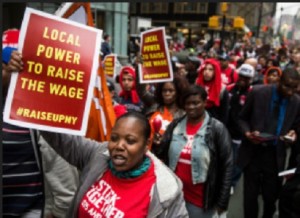Dear Commons Community,
Richard D. Kahlenberg, a senior fellow at the Century Foundation, has an op-ed in today’s New York Times examining the issue of admissions into New York City’s elite high schools. Kahlenberg reviews the policy of using only qualifying test scores and recommends a new approach based on a system he helped develop in Chicago. Here is an excerpt:
“NEW YORK CITY’S elite public high schools were always meant to provide a quintessentially American blend of academic excellence and democratic accessibility. Unlike the city’s expensive private schools, they would be free and open to all who were academically qualified, irrespective of pedigree.
“You pass the test, you get the highest score, you get into the school — no matter what your ethnicity, no matter what your economic background is,” Mayor Michael R. Bloomberg said in 2012. But this year, only 5 percent of seats at those eight schools were offered to black students and 7 percent to Latinos, in a city where the public schools are 70 percent black and Latino. At Stuyvesant High School, just 3 percent of offered seats this year went to black and Latino students.
When the number of black and Latino students admitted to a public school is a tiny fraction of their share of the general population, it raises red flags about the fairness of the admissions system.
New York City’s eight selective public high schools base admissions on a single two-and-a-half-hour assessment — the Specialized High Schools Admissions Test — a practice that is unusual among other large public school systems in the nation. The N.A.A.C.P. Legal Defense and Education Fund, along with other groups, has filed a federal civil rights complaint against this arrangement…
Five years ago I worked with Chicago public school officials to create a program for their selective and magnet schools. Chicago had previously been under a racial desegregation consent decree that employed racial quotas, but when the consent decree ended, the city sought a new way to promote fairness and diversity without relying on race.
Under the policy we developed, 30 percent of students are admitted to Chicago’s highly selective high schools (such as Walter Payton College Prep) based strictly on the traditional criteria of grades and test scores. The remaining seats are allocated to the highest-scoring students from four different socioeconomic tiers, under the premise that students in the poorest parts of the city who score modestly lower on standardized tests have a lot to offer, given the obstacles they’ve had to overcome.
Demographers rank Chicago’s census tracts from most to least advantaged by six criteria: median family income, average level of education attained by parents, percentage of single-family homes, percentage of homes where English is not the first language, percentage of homeowner-occupied residences, and school achievement scores by attendance area.
The policy has resulted in far more racial and ethnic diversity than in New York City’s elite public schools. At Walter Payton, 21 percent of students are black and 25 percent are Latino. Some critics worry that these numbers are still inadequate in a public school system where 41 percent of students are black and 45 percent Latino. But compared with Stuyvesant, Payton is a multicultural paradise.”
Something has to be done to create greater diversity in NYC’s elite high schools. What Mr. Kahlenberg is suggesting should be considered.
Tony



